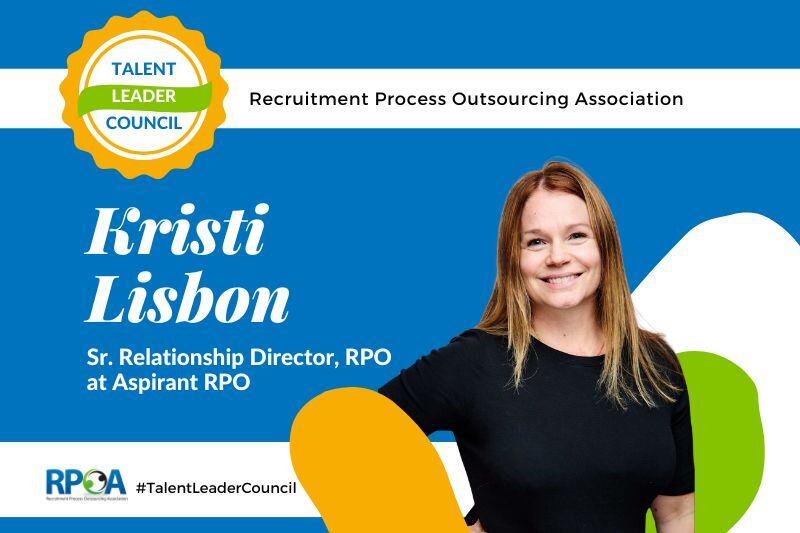
Today, recruitment process outsourcing presents a proven-strategy for attracting and recruiting top talent. Business and talent acquisition leaders must understand the requirements of partnering with an RPO provider to get the most from their investment. Here, top experts explain what you should know about working with an RPO partner.
How do you define a successful RPO partnership?
Kim Pope, Executive President of Global Client Solutions at WilsonHCG, says that defining the RPO partnership starts early when you are having exploratory conversations with your RPO provider. At this stage, you are looking at the cultures of the two organizations coming together. In the beginning, many conversations should focus on cultures and values while discussing how both partners are going to build the program together. This creates a strong foundation to build a strong partnership over time.
The other component for a successful partnership is transparency--a real understanding of the organization's challenges, and how you are going to work together to build the right solution to address those challenges.
You have to expect bumps along the way as you delve into understanding the data, workforce planning, how to measure the relationship, prior biases, and working through change management. It's critical to have all these conversations upfront; it will lay the foundation for navigating the partnership later on.
The next step is aligning the team and infrastructure that fits culturally. Determine the outcome that the organization expects to get comfortable with the recruitment infrastructure, whether functional, local, or regional. There are many things you should take into consideration by listening and understanding what the best solution is and designing it together.
These are just a couple of the critical elements Pope highlighted for an RPO partnership to start on the right footing.
What is the key ingredient to a successful RPO partnership?
Ryan Baca, Vice President of About Talent, clarifies that RPO is not a contingency model but a commitment model. As such, you have to define and agree on the requirements upfront.
During the implementation, there is much involvement. The client needs to be involved with designing the process, defining the services, selecting the technologies. The client should guide how their organization should be represented by the RPO internally and to the outside world.
Once you have this kind of involvement and nail down the strategy, you derive operational efficiencies and improved metrics.
RPO is a commitment model since all parties are working towards the same goal, and in the long-run, build efficient processes and get better results.
Understanding The Cost of RPO: Value-based Pricing
Jennifer Kihm (JAK), with Operant Consulting, states that in her experience, having worked with a variety of organizations, implementing an RPO is guided by the level of service, capabilities, and outcome.
According to Kihm, "RPO won't cost more than a competing model given its value-add." RPO brings strategy, systems, tools, and expertise to attract, vet, and deliver top candidates. "You may, therefore, end up spending the same amount of money, but end up getting so much more or even spending less."
Kihm says that she never advises her clients to spend the least amount of money on RPO since there is nothing more important for an organization than attracting the right talent. When you put the right people in the right role, at the right time, everything else in business becomes more manageable. Investing in RPO is about optimizing talent acquisition spend and not necessarily reducing it. You want to make sure you are building a model that delivers the results desired while spending wisely.
The business case depends on what you are buying-and on articulating the value that it provides.
Recommended: A Quick Guide to Understanding Recruitment Process Outsourcing [free eBook]
What about employee retention of RPO hires?
Zack Chertok, HCM Principal Analyst at Aberdeen, says that RPO focuses on not only fulfilling today's needs but also delivering value in the long-term.
One of the best statistics that illustrate the value of RPO is the average investment of talent acquisition versus talent performance management. Talent acquisition is getting more spend as compared to talent performance management in the ratio of 2:1.
RPO outperforms other talent acquisition solutions in getting the right talent at the right place and at the right time. With RPO, recruitment strategy and innovation are developing outside the organization. On the contrary, talent profile, scope, and talent pools are limited when you try to go it alone.
It takes 2.2 years for an employee to pay back what the organization paid to bring them onboard. With other TA solutions, employees are leaving before their hiring costs are paid off. When working with an RPO, the strategy goes beyond getting the employee into the organization. RPOs consider where the candidate wants to be relative to the need of the organization, and where the organization strategy is heading. They also look at an employee's goals and the kind of resources the organization needs to retain that employee to help them evolve into the future needs of the organization.
The statistics of RPO-acquired talent are better than those coming from traditional recruitment or sourcing strategy. RPOs are focused on long-term goals and benefits. You might make the same investment or slightly more for an RPO partnership, but the resource benefit in the backend is much higher. It's 1.2 times the initial investment made in sourcing and screening, meaning you get 3 to 4 times more value with RPO.
Recommended: RPO and the skills gap challenge [free research report from Aberdeen]














